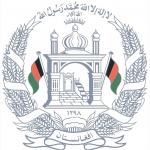International Atomic Energy Agency -IAEA
The International Atomic Energy Agency (IAEA) is the key agency to promote cooperation in the field of peaceful uses of nuclear energy, an initiative of President Eisenhower enunciated in his famous ‘Atoms for Peace’ speech. After approval of the IAEA Statute, on 23 October 1956 by 81 States, the Agency was created on July 29, 1957. As of April 2021, 173 States are members of IAEA, which employs 2560 multidisciplinary professional and support staff from more than 100 countries.
The principal objective of the Agency is to “accelerate and enlarge the contribution of atomic energy to peace, health and prosperity throughout the world” and to ensure so far as it is able, “that assistance provided by it or under its supervision or control is not used in such a way as to further any military purpose”.
The Agency thus functions under two broad categories namely: (i) promotional activities, which it is expected to carry out through technical assistance to the interested Member States in areas of nuclear power, applications of nuclear energy, strengthening of safety and security measures etc and (ii) verification activities, which it carries out through implementation of safeguards, which it can apply to a given State’s activities in the field of atomic energy, at the request of that State.
Governance
The two Policy-Making Organs (PMOs) of the IAEA, each governed by its respective rules of procedure, determine policy and oversee the main aspects of the IAEA’s work. These include: (a) The General Conference of all the IAEA member states, which convenes annually in September. It is the main governing body of the Agency. It studies and approves the IAEA’s program and budget, and makes decisions on matters brought to its attention by the Board of Governors, the Director General or member states; and (b) the 35-member Board of Governors, which generally meets five times a year. It makes recommendations to the General Conference on the Agency’s program and budget, authorizes the IAEA Director General to conclude and implement safeguards agreements, considers reports by the DG, establishes safety standards, and votes on resolutions. This body is also responsible for appointing the Director General, with the agreement of the General Conference.
The Director-General of the IAEA is Mr. Rafael Mariano Grossi who assumed office on 3 December 2019. Mr. Grossi is a diplomat with over 35 years of experience in the field of non-proliferation and disarmament. In 2013, he was appointed Ambassador of Argentina to Austria and Argentinian Representative to the IAEA and other Vienna-based International Organizations.
